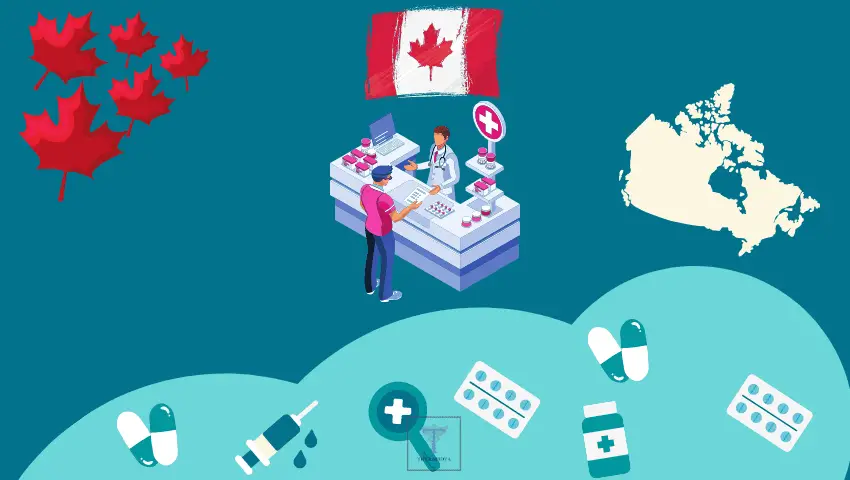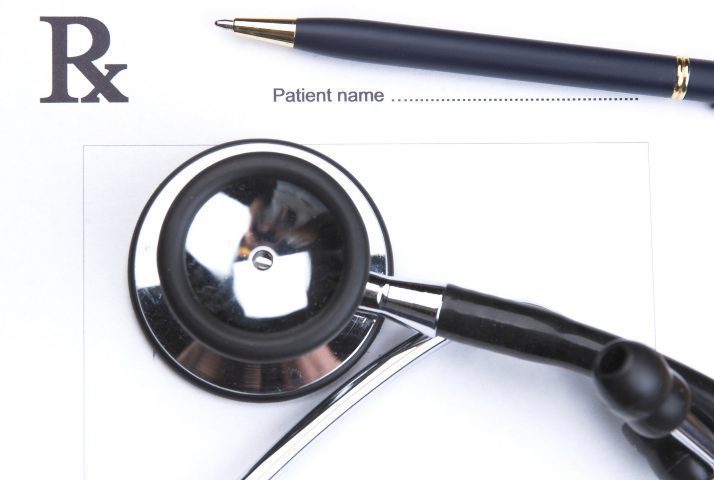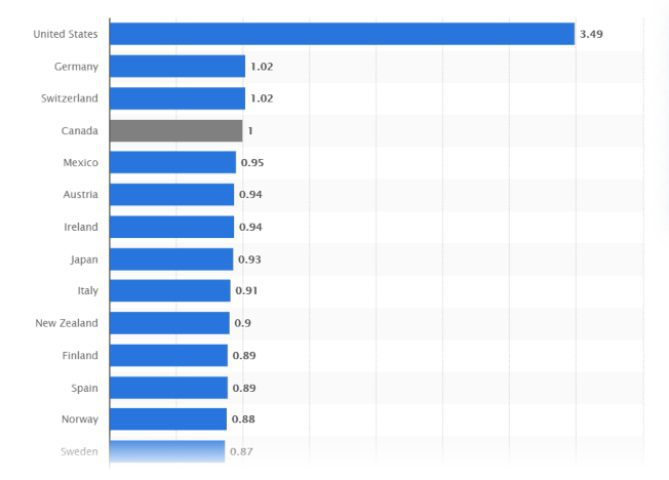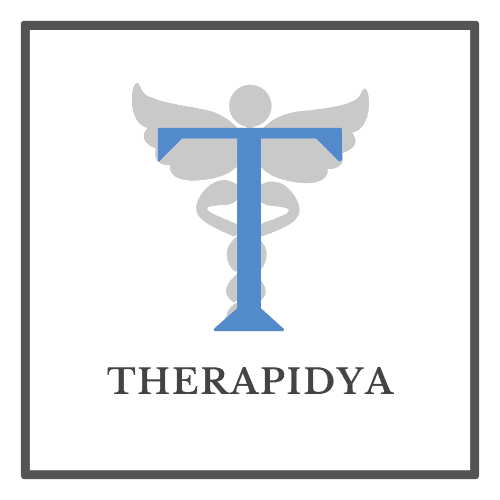Pharmacy in Canada .. Everything you need to know 2023
In this article, we will tell you everything you need to know about pharmacy in Canada.
The issue of drug supply and access to pharmacy service can be very difficult and important when going abroad. It is very important to reach the medicine we need when jetlag and diseases occur or when we migrate to a new place.

About Pharmacies in Canada
In Canada, pharmacies can sell medical supplies, supplements, OTC products and drugs for various conditions or diseases, as well as prescription drugs.
There is also a chain pharmacy system in Canada.
How Many Years Does Pharmacy Education Take in Canada?
Pharmacy education in Canada lasts for 4 years.
How to Become a Pharmacist in Canada
- After high school, it is necessary to complete a pharmacy degree program at university.
- Then one must apply for a pharmacy degree program at the university, which takes four years to complete.
- First of all, education on general sciences, which lasts about 2 years, is given. Afterwards, the pharmacy undergraduate program, which lasts for 4 years, is completed.
- After graduating from pharmacy school, you are required to take a national board exam through the Canadian Pharmaceutical Review Board (PEBC).
- You also need to experience practical application by doing an internship. this is of great importance to apply pharmacy more accurately.
- Apart from these, you need to know advanced English and French, and this is an important condition for providing a good service.
Pharmacy Faculties in Canada
- Dalhousie University
- Memorial University of Newfoundland
- University of Montreal
- University of Laval
- University of Alberta
- British Columbia University
- University of Manitoba
- University of Saskatchewan
- University of Toronto
- University of Waterloo
Pharmacists in Canada
As key healthcare professionals, pharmacists in Canada can provide clinical advice and over-the-counter medicines for a number of more easily treatable ailments, such as cough, cold, sore throat, stomachache, general and simple ailments and illnesses.
Pharmacists are highly trained to make sure you receive the right treatment when symptoms indicate that the problem or the source of the problem is more serious. When you need to go to a doctor, nurse or other health professional, he has the authority to direct you to the right person and not intervene.
All pharmacists receive 4 years of training on all subjects where the name of the drug and treatment is mentioned. They also receive training in treating less curable diseases and maintaining and maintaining well-being.
Many pharmacies operate very late and are open on weekends. You do not need an appointment. You can get service immediately when you go.
Most pharmacies have a dedicated consultation room where you can discuss issues with pharmacy staff without being overheard.

Requirements to Open a Pharmacy in Canada
To open and operate a pharmacy, you must have a pharmacist degree.
To obtain a pharmacy license in Canada, you need:
- A bachelor of pharmacy or doctoral degree from one of 10 Canadian universities
- Complete the national board exam of the Canadian Board of Pharmacy Review (PEBC) (except in Québec). You cannot open a pharmacy without passing this exam because you are not considered competent in pharmacy.
- Gain practical experience with an internship program
How Much Does It Cost to Open a Pharmacy in Canada?
The cost of opening a pharmacy in Canada can vary depending on the pharmacy’s location, inventory, and staffing costs. The sum of these costs can be quite high. But the important point is how much profit is made. The biggest cost factors are:
- Rent money
- Employee personnel costs (Training fees should also be taken into account.
- Inventory (OTC, prescription drugs, other retail items)
Apart from these three main elements, the pharmacy has many expenses. For this reason, it is necessary to make a very good calculation before starting this work.

How Can a Foreign Pharmacist Open a Pharmacy in Canada?
NAPRA ( National Association of Pharmacy Regulatory Authorities) is required to register in a communication network called Pharmacists’ Gateway Canada. It is a mandatory first step towards obtaining a license in Canada for pharmacy graduates (IPGs) abroad in all cities except Québec.
Pharmacists’ Gateway Canadais a free-for-anyone-visit website where IPGs can find everything needed to more accurately grasp and navigate the Canadian licensing process and provides a set of tools for IPGs. Gateway provides easy access to clear and up-to-date information on licensing requirements, which may vary in each province and territory across Canada. Your information is stored in a confidential national document repository accessible to the PEBC (Pharmacy Examining Board of Canada) and pharmacy regulatory authority.
For more information on bridging programs that help IPGs successfully complete licensing requirements to practice pharmacy in Canada, several programs are available:
- International Pharmacy Undergraduate Program – Leslie Dan School of Pharmacy at the University of Toronto, ON
- Canadian Pharmacy Practice Program– Faculty of Pharmaceutical Sciences at the University of British Columbia, Vancouver, BC
- International Pharmacy Bridging Program – Bredin Institute in Calgary, AB and Edmonton, AB
How Can I Find the Nearest Pharmacy in Canada?
Finding your nearest pharmacy in Canada is quite easy. Search for ‘pharmacy’ in your phone’s map app or ask someone near you ‘How to find a pharmacy?’ .
Read also: Pharmacies in The UK Everything you need to know 2021
Working Hours of Pharmacies in Canada
What is the minimum number of hours the pharmacy must be open?
Working hours are at the discretion of the pharmacist. Working between certain hours is not mandatory and there is no legal requirement in this regard.
A pharmacy’s internal opening hours should be consistent and should let the public know when a pharmacist is available to fill prescriptions or answer questions about medications or other medical issues from the patient.
In Which Situations Should You Go To Pharmacies In Canada?
- In simpler diseases, you can go to the pharmacy when you need various issues such as over-the-counter drugs, OTC and supplements, medical supplies, dermocosmetic products, mother-baby products.
- You can go to pharmacies to get your prescription drugs.
- You can go to the pharmacy for advice or guidance on medical or cosmetic matters.
without going to the pharmacy pregnancy categories You can get information about
What is Sold in Pharmacies in Canada?
Medical equipment
It is possible to find a wide variety of medical supplies such as wheelchairs, crutches, oximeters, surgical equipment, and bandages. In addition, products to help manage certain diseases such as diabetic test strips, blood pressure monitors and nebulizers are available from pharmacies.

supplements
Sometimes you can find the necessary supplements to treat diseases and sometimes to maintain a healthy life. Also, people who exercise or people who want to eat better usually prefer protein etc. You can also find products in pharmacies.
Non-Prescription Medicines, OTC
There are a variety of over-the-counter medications that can be used when medicine is needed for simpler conditions such as the common cold or bloating. You can ask your pharmacist for the product you need or tell your symptoms and complaints to learn and buy the product that is suitable for you.
In Canada, over-the-counter drugs are decided based on the following:
- Make sure their use is safe
- Reducing health risks for Canadians
Identification of Over-the-Counter Drugs
Over-the-counter medicines must have a Drug Identification Number (DIN) to be sold in Canada. This number on a product label indicates that the drug complies with the following needs:
- Safety
- Quality
- Productivity
The label lists the ingredients of the drug. Thus, when a user is concerned about the above substances and content of the drug, they can easily control it.
Prescription Drugs
You can get your medicines from pharmacies when your doctor gives you a prescription for a certain type of medicine.
As with the sale and distribution of drugs, the prescribing of prescription drugs is a process that is governed by provincial legislation in Canada. Being able to prescribe prescription drugs is an action that only certain people can take. Medicines are usually prescribed by medical doctors and dentists. In addition to medical doctors and dentists, nurses, pharmacists and midwives can prescribe prescription drugs only in certain situations.

Items Prohibited for Sale in Pharmacies in Canada
- Selling prescription drugs without a prescription
- counterfeit drugs
- expired drugs
- Medicines found to be improperly manufactured or contaminated
Read also: Side Effects of Antibiotics: Full Guide 2021
Do You Need a Prescription to Buy Medicines from Pharmacies in Canada?
In Canada, products that can be used in simple ailments and fall into the OTC category can be sold without a prescription, while all other drugs can be purchased with a prescription.
Authorization to distribute over-the-counter drugs is maintained under the (NAPRA) program assigned to the drug. Program II and Program III category drugs are offered to the patient under the supervision of a licensed pharmacist. However, drugs outside of these programs can be sold at any retail outlet and therefore no special authorization is required for a person to be allowed to purchase them.
Can You Get Antibiotics Without a Prescription from Pharmacies in Canada?
The sale of antibiotics without a prescription is illegal in Canada.
Supply of Medicines Abroad from Canada
It is illegal to legally ship prescription drugs to the United States by “online pharmacies” outside the United States. But here again, authorities are exercising their “practice discretion”, preferring to use limited resources to crack down on large commercial drug supplies and narcotics, not the prescription drug transport that everyone needs. Thus, customs authorities approve the shipment of pharmaceutical supplies by companies for up to 90 days.
There are several websites that patients can choose from to make sure they are using an online pharmacy that is legit.
- VIPPS , Verified Internet Pharmacy Application Site.
- CIPA , website of the International Pharmacists Association of Canada.
- Including Canadian online pharmacies Pharmacy Checker .

Drug Prices in Pharmacies in Canada
Why Are Medicines Cheaper in Canada?
The Federal Patented Drug Price Review Board (PMPRB) is a government agency located in Canada. This agency has the power to object to any selling price of a medicine patented in Canada. PMPRB derives these rights and power from federal patent law.
There is no bargaining system to reduce drug prices. PMPRB has the ideology that the sale prices of patented drugs are an illegal abuse of patients’ rights. It then covers the prices paid by private and public plans.
Why Are There Differences in Pharmaceutical Prices in Canada and the USA?
The US allows market competition while controlling drug prices. This causes drug prices in the USA to be higher than in other countries. In many other countries, the government directly or indirectly manages drug costs and selling prices.
The competitive marketing system of the USA allows pharmaceutical companies to generate very high profits. Pharmaceutical companies counter these public complaints by stating that profit is needed to promote high-risk and costly research.
According to Statista, the table formed according to the ratio of the patented drug prices in 2019 to the patented drug prices in Canada is as follows:

This post is also available in: العربية (Arabic) Dansk (Danish) Nederlands (Dutch) Français (French) עברית (Hebrew) Italiano (Italian) Polski (Polish) Română (Romanian) Русский (Russian) Türkçe (Turkish) Español (Spanish) Български (Bulgarian)



